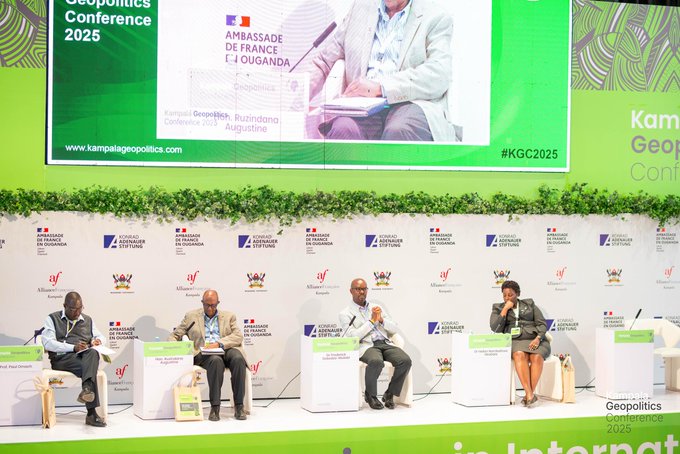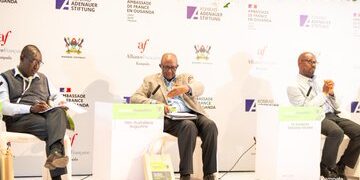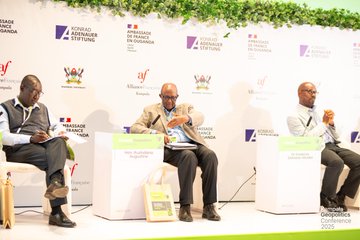At the opening panel of the Kampala Geopolitics Conference 2025, held at Makerere University, regional experts, scholars, and advocates convened to discuss the ongoing crisis in the Democratic Republic of Congo (DRC) under the theme: “Navigating Pathways to Sustainable Peace and Development in the DRC.”
Moderated by Prof. Paul Omach, Head of the Department of Political Science and Public Administration at Makerere University, the discussion interrogated the underlying causes and potential pathways to sustainable peace in one of Africa’s most conflict-ridden states.
“The DRC conflicts have been going on for so long and have since become more than a national crisis, but a regional crisis,” said Prof. Omach.
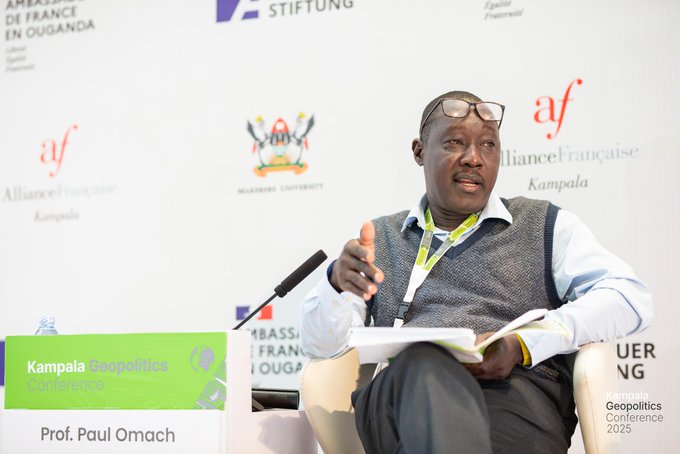
“The situation has continued to worsen with the emergence of armed rebel groups over the years. The question of identity has led to the proliferation of armed groups, which all claim to speak for the voiceless of Congo. Are they authentic voices of reason, or are they masquerading behind selfish motives?”
Root Causes: Identity, History, and Natural Resources
Hon. Ruzindana Augustine, a democracy and social justice advocate, emphasised the intersection of identity, colonial legacies, and the mineral economy in fueling the crisis.
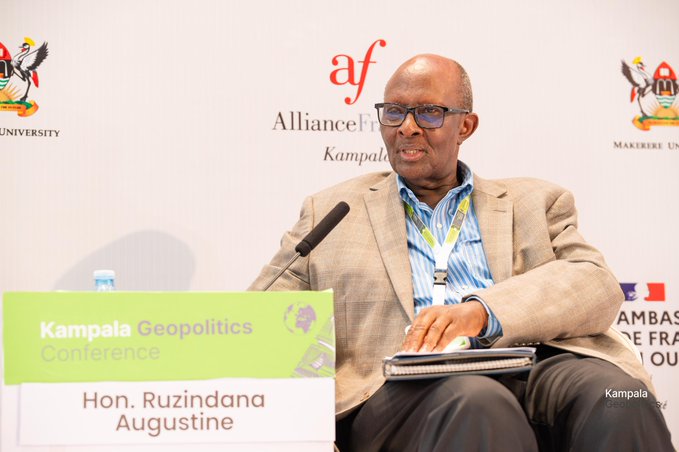
“The topic of peace in the DRC involves identity, politics, and minerals. For us to settle the matter of peace, we need to advocate for peace to start at the local level in Eastern Congo,” he said.
Drawing on historical context, Ruzindana traced demographic changes in Eastern Congo back to colonial labour movements and the post-genocide refugee influx.
“In colonial times, the Belgians needed free labour for their ranches and farms. From 1926 to 1956, labour exportation for the service of Belgians was estimated at 150,000 people from Burundi and Rwanda,” he said. “The 1994 genocide led to the migration of refugees from Rwanda to Eastern Congo, increasing ethnic diversity in the region and exacerbating conflict.”
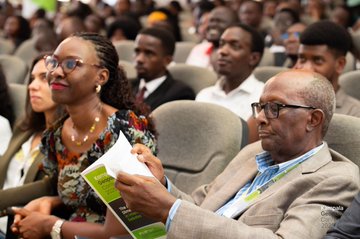
Calling attention to the lack of an effective central authority in Kinshasa, Ruzindana stated, “There is a need for an effective state to keep the peace in the DRC. Otherwise, we wouldn’t be talking about peace in Congo here today. And we know that we are not about to have an effective state in Congo, so we need to forge other solutions to the impending insecurity.”
In his closing remarks, he decried the superficiality of modern information consumption. “The downside of social media is that people have been reduced to the comfort of reading just two paragraphs about wide subjects. I urge young people to interest themselves in reading detailed African history.”
The M23 Crisis and External Complications
Dr. Frederick Golooba-Mutebi, a political analyst specialising in the Great Lakes Region, pinpointed the M23 rebel group as a major destabilising force rooted in unresolved refugee dynamics post-1994.
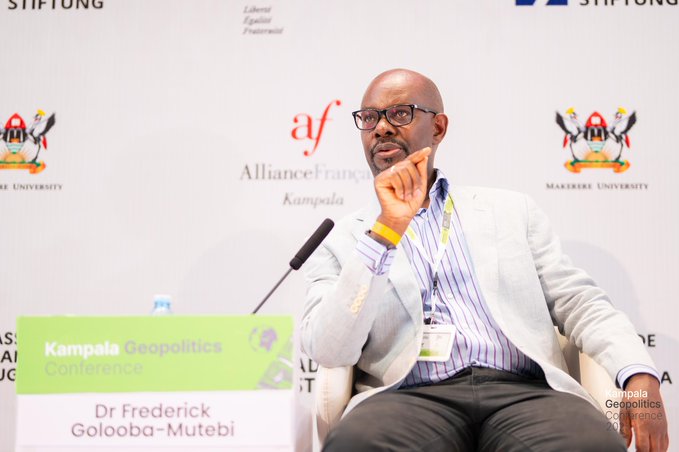
“We need a strong state in the DRC to be able to solve the conflicts in Congo. We know that the DRC has multiple rebel groups, except M23, which has emerged as the biggest,” he said.
“The roots of the M23 crisis in Eastern DRC trace back to the 1994 Genocide. Refugees and perpetrators fled to Congo—today, over 100,000 Rwandese refugees remain. Their unresolved presence continues to fuel instability in the region.”
He warned against external interventions that lack long-term commitment and clarity of motive. “Sustainable peace in Eastern Congo requires building a strong state that secures borders and addresses refugee integration. External interventions—especially by Western actors—have often deepened the crisis, not solved it.”
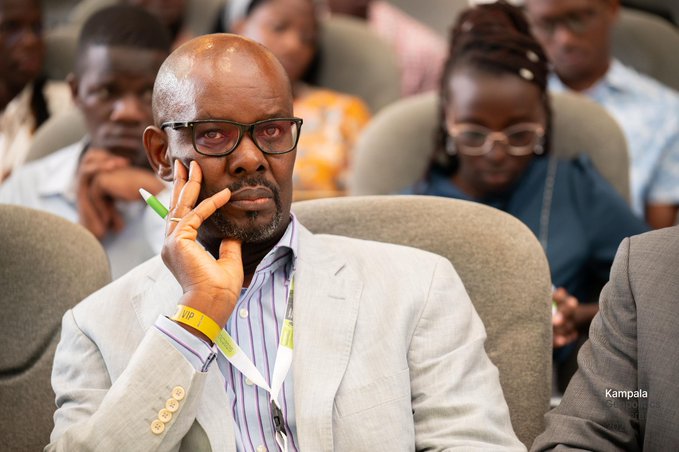
The Colonial Legacy and Geopolitical Complexity
Dr Hellen Nambalirwa Nkabala, Principal of the College of Humanities and Social Sciences at Makerere University, emphasised the role of historical boundaries and Western interests in complicating peace efforts.
“We have to transcend the 1994 genocide and go back to the colonial times, where ethnicities were divided by imposed borders,” she said. “Several Western actors in Congo have shown conflicting motives—often hiding behind peacekeeping while exploiting the country’s vast mineral wealth. As long as profit trumps peace, true stability in the DRC will remain elusive.”
Dr Nkabala further highlighted how geography compounds the conflict. “What makes the DRC special is its geographical terrain in the Eastern Congo, which provides fertile ground for the growth and insurgency of rebel groups.”
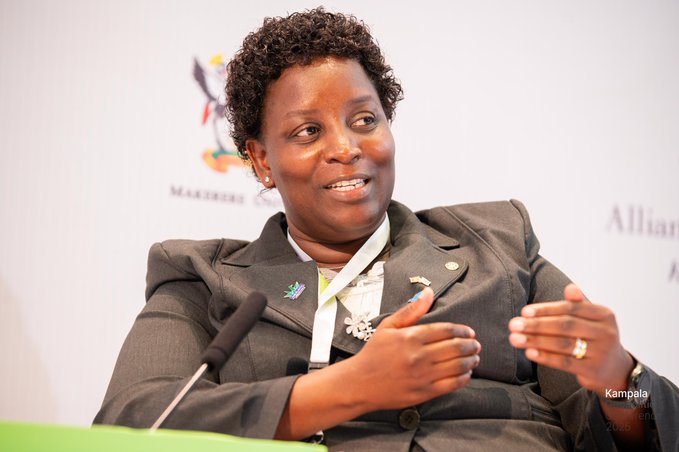
A Call for Localised and Regional Solutions
The panellists unanimously agreed on the need for localized peacebuilding efforts, strengthened governance structures, and regional cooperation.
“Peace must be anchored in the communities most affected,” said Ruzindana. “A strong, inclusive state is not just a goal—it’s a necessity,” echoed Dr. Golooba-Mutebi.
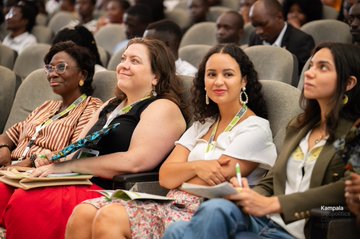
The panel set the tone for what promises to be a thought-provoking multi-day conference, featuring dialogues on democracy, migration, global governance, climate change, and Africa’s place in international relations.
#KampalaGeopolitics2025 continues tomorrow, Thursday, at Makerere University under the auspices of the Embassy of France in Uganda, the Konrad Adenauer Stiftung, and Makerere University’s Department of Political Science and Public Administration.
